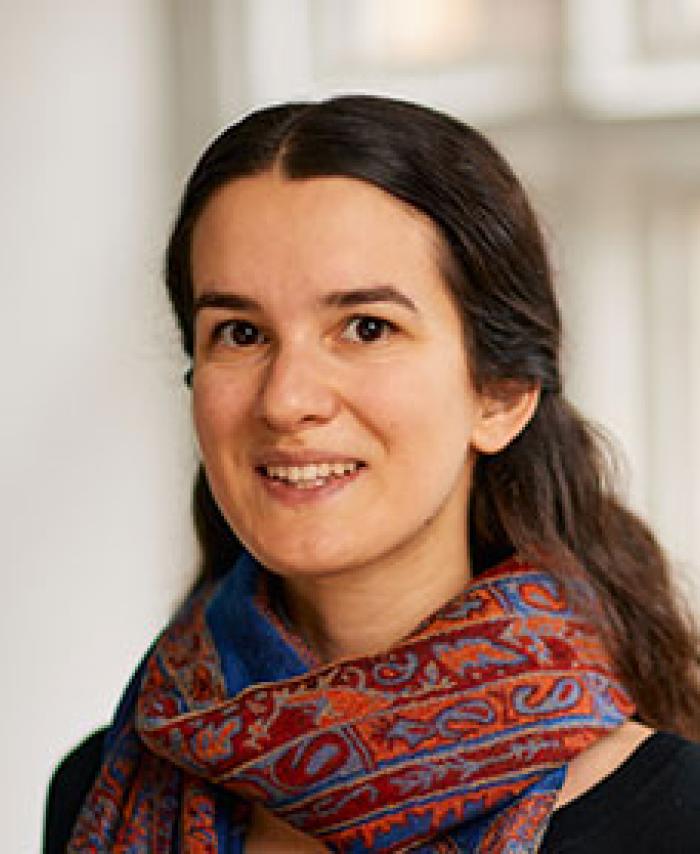
Research interests
International relations; global governance; Muslim-majority relations; emotions in politics
Jörg Friedrichs
Jörg Friedrichs is Associate Professor at ODID and Fellow of St Cross College, Oxford. His main interests are in the fields of international relations (IR) and political sociology. Jörg is currently working on great power relations, not only involving the Global West and the East but also the Global North and the South. He has a special interest in the political economy of mercantilism as well as great power competition over technological leadership. Previously, Jörg has introduced an intercultural theory of international relations and proposed pragmatism as a way to advance IR research and methodology.
In recent years, Jörg has also taken an interest in relations between Muslim minorities and non-Muslim majorities. His most recent book is about Integration in Multicultural England: Community Relations Between Muslims and Non-Muslims (2025). Previously, he has published a book on Hindu-Muslim Relations: What Europe Might Learn from India (2019). In the context of the same project, Jörg has also published about Han-Muslim relations in China.
Jörg finished his studies of Classics in Germany and Italy with a book on political rhetoric in the work of Thucydides, a classical Greek historian (2000). His doctoral studies in Munich led to another book on European Approaches to International Relations Theory (2004). His postdoctoral research led to a third book, Fighting Terrorism and Drugs: Europe and International Police Cooperation (2008). His fourth book was The Future Is Not What It Used to Be: Climate Change and Energy Scarcity (2013).
Jörg has published on other topics ranging from denial and self-deception to security regionalism in East Asia. His articles have appeared in peer-reviewed journals like International Organization, International Theory, Third World Studies, and Philosophical Psychology.
Jörg Friedrichs teaches for the MSc in Global Governance and Diplomacy. He teaches a seminar on Religion in World Politics and contributes to the foundation course on Global Governance and Diplomacy. He also teaches Qualitative Research Methods.
Doctoral supervision
Jörg is keen to supervise research in international relations and political sociology. He takes special interest in work on religion and world politics, as well as Muslim-majority relations.
-
Books and monographs( ) Integration in Multicultural England: Community Relations between Muslims and Non-Muslims . , London: Bloomsbury( ) Hindu-Muslim Relations: What Europe Might Learn from India . , London and New Delhi: Routledge( ) The Future Is Not What It Used to Be: Climate Change and Energy Scarcity . , Cambridge: MIT Press( ) Fighting Terrorism and Drugs: Europe and International Police Cooperation . , London and New York: Routledge( ) European Approaches to International Relations Theory: A House with Many Mansions . , London and New York: Routledge( ) Aufschlussreiche Rhetorik: Ein Versuch uber die Redekultur und ihren Verfall bei Thukydides . , Wurzburg: Ergon
-
Journal articles and special issues( ) Populism and governmentalism as thin-centered ideologies: Emotions and frames on social media . European Journal of Political Research( ) Ethnic segregation in schools: a study of non-decision making . Journal of Education Policy 38 (3) 1024-1043( ) Fear-anger contests: Governmental and populist politics of emotion . Online Social Networks and Media( ) Majority-Muslim Hate Crimes in England: An Interpretive Quantitative Analysis Journal of Muslim Minority Affairs 41 (2) 215-32( ) Explaining China’s popularity in the Middle East and Africa Third World Quarterly 40 (9) 1634-54( ) Intermestic security challenges: managing transnational bonds . European Journal of International Security 3 (2) 162-86( ) Outlandish Christendom: the Catholic Church in India and China Journal of Church and State 60 (4) 681-704( ) Sino-Muslim relations: The Han, the Hui and the Uyghurs Journal of Muslim Minority Affairs 37 (1) 55-79( ) Causal mechanisms and process patterns in international relations: thinking within and without the box . St Antony’s International Review 12 (1) 76-89( ) An intercultural theory of international relations: how self-worth underlies politics among nations . International Theory 8 (1) 63-96( ) Useful Lies: The Twisted Rationality of Denial . Philosophical Psychology 27 (2) 212-34( ) Global Islamism and World Society . Telos 163 7-38( ) The Carbon Curse: Are Fuel Rich Countries Doomed to High CO2 Intensities? . Energy Policy 62 1356-65( ) East Asian Regional Security: What the ASEAN Family Can (Not) Do . Asian Survey 52 (4) 754-76( ) Peak Energy and Climate Change: The Double Bind of Post-normal Science . Futures 43 (4) 469-77( ) Global Energy Crunch: How Different Parts of the World Would React to a Peak Oil Scenario . Energy Policy 38 (8) 4562-69( ) From Positivist Pretence to Pragmatist Awareness: Varieties of Pragmatic Methodology in IR Scholarship . International Studies Review 11 (3) pp 645-8( ) The Mercenary Debate: Privatized Security Cripples State-building; Iraq is a Case in Point . The American Interest 4 (6) 43-8( ) On Acting and Knowing: How Pragmatism Can Advance International Relations Research and Methodology . International Organization 63 (4) 701-31( ) Defining the International Public Enemy: The Political Struggle Behind the Legal Debate on International Terrorism . Leiden Journal of International Law 19 (1) 69-91( ) International Relations Theory in France . Journal of International Relations and Development 4 (2) 118-37( ) The Meaning of New Medievalism . European Journal of International Relations 7 (4) 475-502
-
Chapters( ) Thinking on time: How scholarly praxis can sustain, subvert and transform social reality . In Gunther Hellmann, Jens Steffek Praxis as a Perspective on International Politics , Bristol University Press 197-211( ) Papal Presence in East and South Asia: China, India and Beyond . In Mariano P Barbato The Pope, the Public and International Relations: Postsecular Transformations , Palgrave Macmillan 97-117( ) Escapology, or how to escape Malthusian traps . In John Brewer, Neil Fromer and Frank Trentman Scarcity in the Modern World: History, Politics, Society and Sustainability, 1800-2075 , Bloomsbury 115-31( ) Who's Afraid of Thomas Malthus? . In Michael J Manfredo, Jerry J Vaske, Andreas Rechkemmer and Esther A Duke Understanding Society and Natural Resources: Forging New Strands of Integration Across the Social Sciences , New York: Springer 67-92( ) Peak Oil Futures: Same Crisis, Different Responses . In Oliver Inderwildi, Sir David King Energy, Transport and the Environment , London: Springer pp 55-75( ) What Do We Mean When We Say Substance Matters? . In O Kessler, R Hall, C Lynch, N Onuf On Rules, Politics and Knowledge: Friedrich Kratochwil, International Relations and Domestic Affairs , Basingstoke: Palgrave Macmillan 74-83( ) The Privatization of Force and its Consequences: Unintended but not Unpredictable . In C Daase, C Friesendorf Rethinking Security Governance: The Problem of Unintended Consequences , London and New York: Routledge 176-97( ) Global Governance as Liberal Hegemony . In J Whitman Governance and Global (Dis)orders: Trends Transformations and Impasses , Basingstoke: Palgrave Macmillan pp 105-22( ) Western Europe: Structure and Strategy at the National and Regional Levels . In A B Tickner, O Waever International Relations Scholarship Around the World , London and New York: Routledge pp 261-85( ) When Push Comes to Shove: The Territorial Monopoly of Force and the Travails of Neomedieval Europe . In M Burgess, H Vollaard State Territoriality and European Integration , London and New York: Routledge pp 228-51( ) The Nordic Countries . In K E Jorgensen, T B Knudsen International Relations in Europe: Traditions, Perspectives and Destinations , London and New York: Routledge pp 125-48( ) Global Governance as the Hegemonic Project of Transatlantic Civil Society . In M Lederer, P Muller Criticizing Global Governance , Basingstoke and New York: Palgrave Macmillan pp 45-68( ) The Neomedieval Renaissance: Global Governance and International Law in the New Middle Ages . In I F Dekker, W G Werner Governance and International Legal Theory , Leiden and Boston: Martinus Nijhoff pp 3-36
-
Encyclopedia entries( ) New Medievalism . In J A Scholte, R Robertson Encylopedia of Globalization Vol 3 , London and New York: Routledge pp 873-75
-
Other publications( ) Sinn und Zweck der Nachhaltigkeitstransformation: von ontologischer Unsicherheit zu sozioökologischer Resilienz . In Christopher Daase, Stefan Engert and Julian Junk Verunsicherte Gesellschaft, Überforderter Staat: Zum Wandel der Sicherheitskultur , Frankfurt: Campus( ) Politiche Nazionali a Confronto: Germania e Regno Unito . In G Vacca Dalla Convenzione alla Costituzione , Bari: Dedalo pp 253-67( ) What's New About the New Middle Ages? . Leiden Journal of International Law 16(3) 649-53







